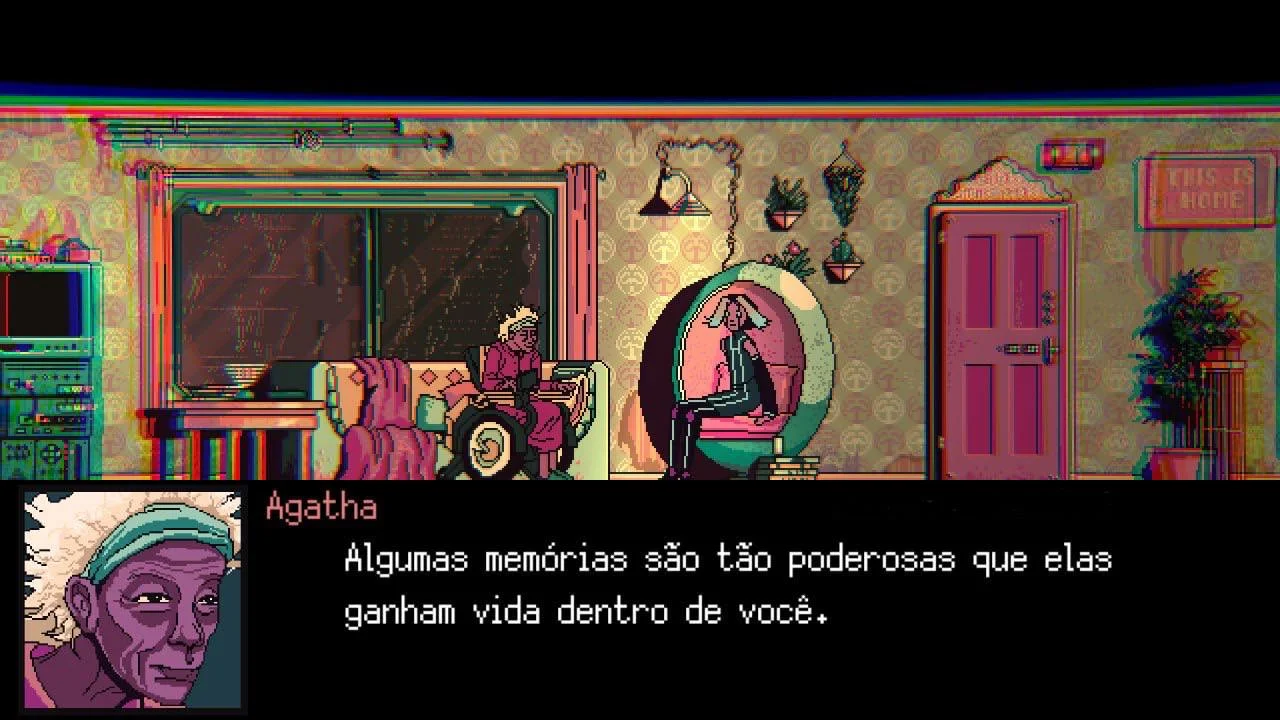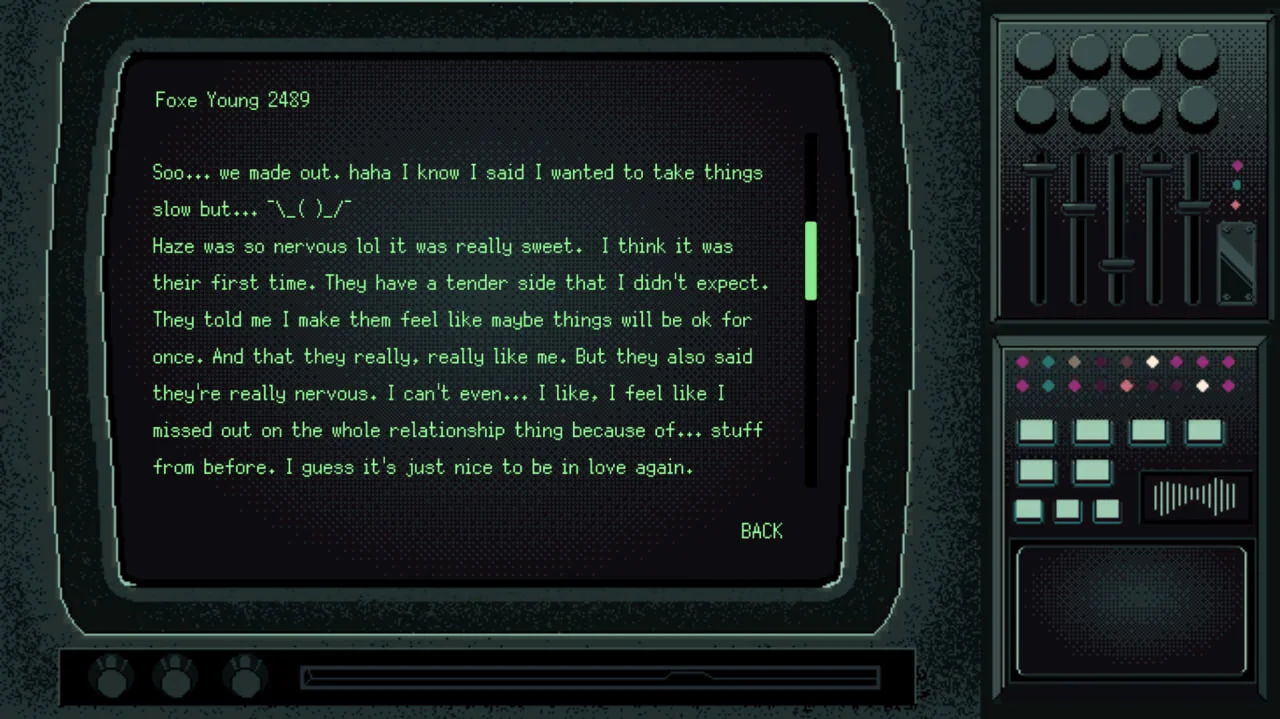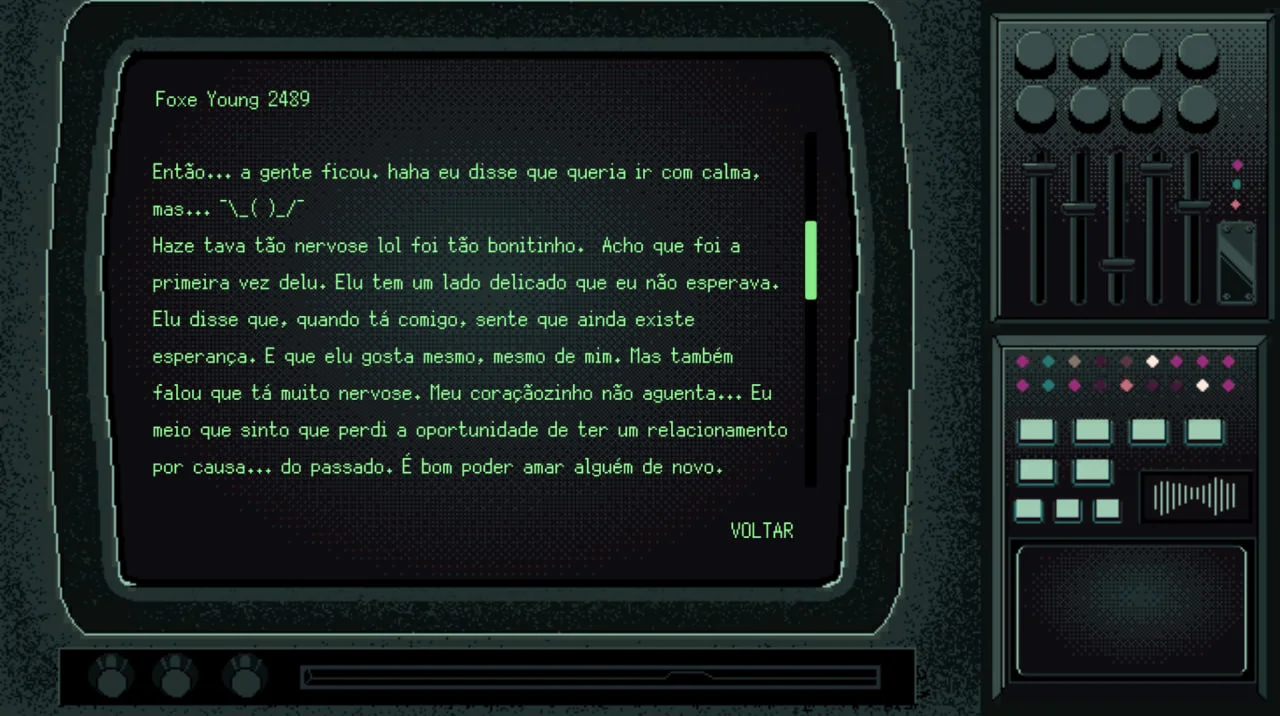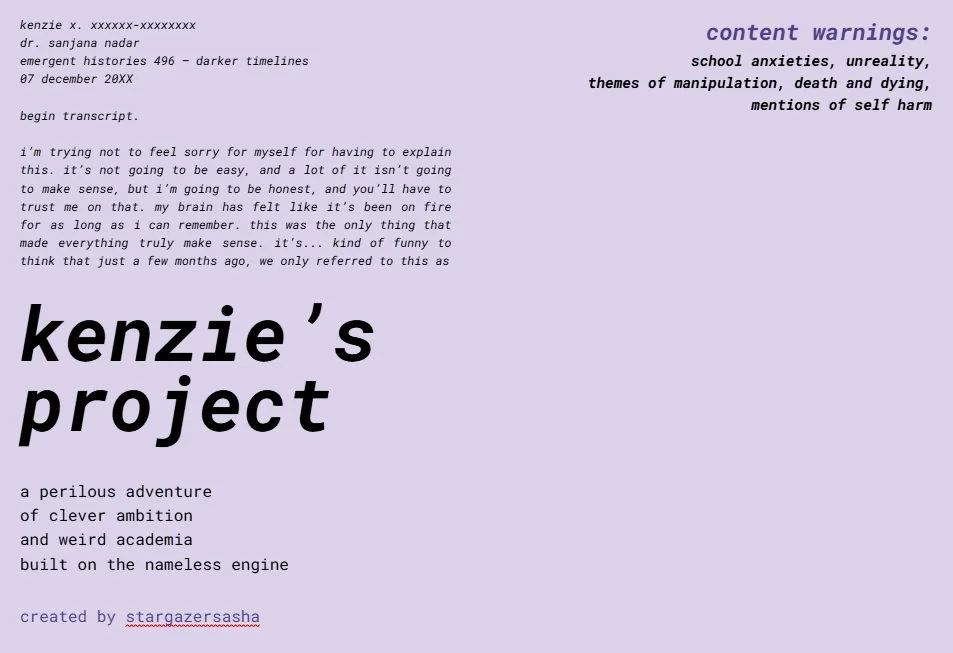Psychroma, developed by Rocket Adrift and published by Gamma Space, is a narrative-driven side-scroller about a haunted cybernetic house and its residents. Set in a dystopian version of Toronto in the year 2489, it features characters whose daily struggles are so different, yet so similar to our own.
This was an initiative of Queer Them All!, a project for pride month 2024. Around 80 language professionals of 20 different languages united to offer localization to a game that was made by queer people and/or featured queer topics. This game fits both categories.
The Brazilian Portuguese team consisted of five people (including me), and all other translators were based in Brazil, while I was based in the Netherlands. This experience taught me a lot about managing communication across different time zones. We shared the roles according to our availability, and I personally took part in the localization, editing, proofreading and LQA stages, while also helping report bugs.

Gender inclusivity
The English language has a well-established gender-neutral pronoun: “they”. This is something that many people have strong feelings about, but there’s no denying the existence of the singular “they”. E.g.: “Someone called me earlier, but I didn’t pick up. I wonder what they wanted.” Everyone uses it, whether they realize it or not. Look, I just did it!
In Portuguese, however, it’s a LOT harder. We do not have any official gender-neutral pronouns. Most times, the masculine form is used as neutral. But to trans people, who more likely than not have had very negative experiences associated with being referred to as the wrong gender, that could be incredibly painful and triggering.
Translators usually try to keep things grammatical. The main guidelines in cases like this is to “take a detour”, that is, rephrase the sentence as to avoid any gendered terms. We do this a lot when the playable character is a self-insert and the game doesn’t offer the player an option to select their gender. This wasn’t the case here, as Haze is non-binary.
The thing is, this was an initiative for the community. What good would it do to pretend this community doesn’t have its own language? To favor a rulebook over the actual living people? We all know languages change to accommodate the needs of the speakers. In this case, “keeping things grammatical” would mean joining in on the oppression, as if saying: “your way of existing is not valid; it’s not in the rulebook”.
The Brazilian team opted to use the neopronoun “elu” for Haze. Any adjectives referring to this character were also adapted. Instead of using the letters “a” (typically female) or “o” (typically male) at the end of the word, we used “e” or “u”, depending on which option sounded better.


This is not to say that this was done every time there was an adjective. We worried that an excessive amount of adapted words could damage the readability of the text or distract players from the story/gameplay, especially for people who are less used to this kind of stuff. That’s why we rephrased some of it, and the result was a balanced text that respected the identity of the characters--and therefore, the players.
And then there’s Salem. Salem is a transgender character who realizes their true identity in the middle of the game. At the beginning, Salem is referred to as male, and midway through the narrative, their pronouns are changed to female. After this, Agatha, Salem’s partner, even redacts the masculine pronouns she used for Salem in her former log entries. We had to be extra careful not to misgender Salem, pinpointing the moment her transition begins.
Even when a sentence has no pronouns, it can still be gendered; in Portuguese, it is common to use articles (such as “the”) before someone’s name when we are referring to them in the third person, and those are also gendered (“o Salem” or “a Salem”). For Haze, we could have replaced “o” or “a” with “e”, but eventually chose to fully omit them. In some regions of Brazil, omitting the article is actually more common, therefore, our choice still sounds natural.
Sensitive content
Psychroma dives deep into the emotional experiences it aims to portray, and because of that, it includes a fair amount of sensitive content. Besides expressions of struggle with self-identity, its stories also contain depictions of trauma, abuse, amnesia and C-PTSD. These topics must be dealt with a healthy amount of care and attention, so as to not offend anybody or reinforce any of the endless stereotypes associated with such situations.
Having a degree in psychology means I spent five years of my life analyzing the most delicate way to use my words in that sort of context. My experience also helped me translate the psychiatrist reports about the research study in the game, as I’m familiar with the tone and technical language used by mental health professionals (and doctors and scientists, in general) in their documents in both languages.
Overall, working on Psychroma was a very positive experience that combined all of my previous experiences and still made me learn so much more. Check out Queer Them All! to read more about our initiative.

